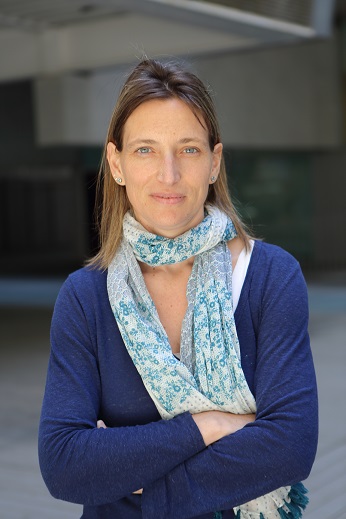
Dr Michela Bertero is Head of CRG’s International and Scientific Affairs Office. In the framework of Open Science, she has been involved in different projects since 2016. At present, she is the coordinator of the ORION project and she represents EU-LIFE in the European Open Science Policy Platform.
What comes to mind when you talk about Open Science?
To me Open Science is science by definition. It is true that, every day more, the scientific practice has been closing on itself. That is why for me it is so important to speak about Open Science, it forces us to rethink about the values behind science and what we can change to make science a common value for everyone.
Open Science will help to establish a dialogue with society, a clearly informed and fruitful dialogue. If scientists agree to have this conversation with society, they need to be truly open. Research institutions, like the CRG, need to openly communicate information to the public and to be open to listen, and eventually to change.
What is the motivation behind the CRG getting involved in ORION?
Since a few years, the CRG has been active in promoting Open Science, implementing an Open Access policy for publications, running a citizen science project all over Spain (“Saca la Lengua”) and developing training for junior researchers. ORION is an opportunity to push further Open Science in collaboration with more actors in Europe. ORION, in fact, embraces 9 institutes, including other EU-LIFE research institutes, funders, social scientists and civil society organizations. The project is a unique opportunity to put Open Science in practice, with a deep focus on public engagement in fundamental research.
Which are the main benefits and drawbacks of Open Science?
The drawbacks of Open Science are mostly related to logistics. No scientist is against the idea of sharing and making her or his outputs available to other scientists and society. But lately, in the last years, scientists have lost some control over a few aspects of the scientific practice. One example is Open Access to publications; scientists have lost control of the publishing process in favour of publishing companies. We need to stimulate a systematic change; every scientific agent needs to start to change her or his environment. Scientists shouldn’t be asked to embrace Open Science if the evaluation system, governments and funding agencies only take into account publications in high impact journals. But this is not the only problem that Open Access raises; we also need to make sure that a new evaluation system as well as the publishing houses evaluate the quality and excellence of science and scientists.
Another problem we have to solve is how we continue to create commercial value if we make science available to everyone. There are lots of questions that need to be answered relating to technology transfer. But despite all of that I still think that the benefits outweigh the drawbacks. The fact that science is more open and widely accessible to all societal actors will have a great impact in science. Open Science will help to revalue fundamental science in the eyes of the general public and help them to see the potential of, and the need for, fundamental research. This will also help to achieve a society that is more scientifically literate, that takes more responsibility in the research that is done.
What do you hope to achieve through the project?
Both at the CRG, and project´s level, I hope we can produce evidence that practicing Open Science has a value for researchers and society as a whole. I would like the project could offer inspiring stories for our institutes and others outside the project to guide the way forward to implement Open Science and Responsible Research and Innovation.
The ORION project is a suitable platform to start the debate about Open Science. The idea with ORION is to start talking with different actors inside each participating research and funding institution about how they incorporate Open Science into their policies and strategic plans. I think that this is very important to set a space for debate, to stimulate reflection around Open Science and how it can be implemented. I would be happy if we can achieve some Eureka moments with our own researchers, when they realise that the public can actually provide them with interesting ideas or reflections that helps to inform their research. That would help them to appreciate the value of being open to the public.
In one year, when the project is coming to an end, what is your dream scenario for ORION?
I would love to see an active community of practice in Open Science, that could eventually continue even after the project´s life time. As community of practice I mean a group of institutes and people with the common goal to continue experimenting Open Science, trying out new methods and projects, and nurturing an open dialogue with society through specific citizen science project, open dialogues, training and other innovative activities.